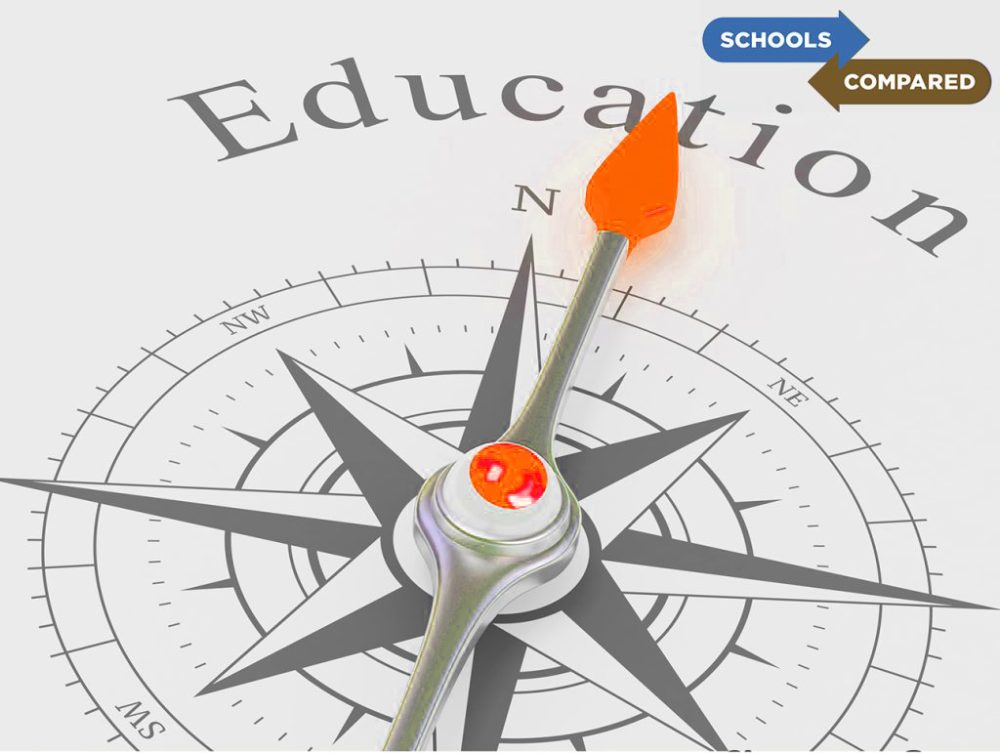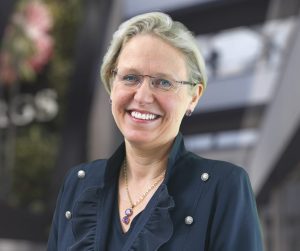Schools Report UAE: What made the news for schools, parents and students in education this week?
The Schools Report brings you the SchoolsCompared.com official Weekly Briefing on the Hottest News in Education.
Every Friday we bring you the latest stories in education in the UAE and around the world in the last 7 days. Here’s what’s been happening this week…
This Week in Education. UAE Education News. First. Every Friday. Only from SchoolsCompared.com.
Dubai School Covid Restrictions Extended by 2 Weeks until 21 Jan
The Dubai education regulator, the KHDA, has extended the current rules put in place to prevent the spread of Covid-19 until the end of January.
In a note to principals sent out on Thursday 13 January, the KHDA has extended the current rules put in place to prevent the spread of Covid-19 for another two weeks.
The unsigned letter thanked school heads for their “patience, strength and resilience”, but noted the changes implemented at the start of the year will continue for an additional fortnight.
The current restrictions on Dubai schools are:
All PE lessons, organised trips, events and internal gatherings, such assemblies and performances, should be put on hold
Extra-curricular activities taking place at school, either within or outside of official hours, should be put on hold
Canteens or cafeterias must be closed and shared eating spaces not be used.
The restrictions will now run to the end of January.
Dubai’s education regulator said it would be in contact again at the end of the month with any update or changes.
Clare Turnbull appointed new principal of Royal Grammar School Guildford Dubai
Following news shared with RGS Guildford parents on 13 January 2022, it has been confirmed that Mrs Clare Turnbull has been appointed the new Principal of Royal Grammar School Guildford Dubai with immediate effect.
Mrs Turnbull was instrumental in establishing RGS Guildford in Dubai, transferring directly from RGS in the UK and leading the development of the premium Tier 1 school throughout all its formative stages. Hugely loved and respected at the school, she has been responsible for ensuring that all of the UK school’s values and ambition for children transferred to the Dubai school.
The decision has been welcomed by families and the broader school community. She brings with her more than 16 years of leadership experience from Royal Grammar School Guildford UK, latterly as Head of Prep. Ms Turnbull was already seen as instrumental in the development of the school and now takes over the complete running of a school we rank Outstanding.
She replaces the outgoing Principal, Craig Lamshed, who steered the school through the initial launch and the more administrative, technical aspects of seeing a UK school established in Dubai.
94% of expats think the UAE has managed COVID crisis better than their home country
An impressive 94% of residents said that they think the UAE has managed the Covid crisis better than their home country, with 77% of respondents saying it has done ‘much better’, according to the results of the Which Schools Advisor (WSA) 2021 Happiness Survey.
This figure has risen since the start of the pandemic: In 2020, 89% of respondents said the UAE was doing a better job, with 60% of those saying ‘much better’.
First held in 2014, the Which School Advisor Happiness survey sheds light on the residents’ wellbeing in every walk of life. The survey covers everything, from expats’ perceptions of the economy, to how they feel about the Emirates as a place to bring up children.
One perhaps surprising finding from the 2021 survey was that more than one in four respondents (27%) received a pay rise in 2021, with 13% of the subset that did getting a rise of more than 15%. That’s the highest WSA has on record. The most common increment was between 3% and 5%, above official inflation rates in the UAE. See more survey results.
Abu Dhabi schools remain on distance learning for one more week
Abu Dhabi schools and universities will remain on distance learning for one more week, from Monday 17 January until Friday 21 January 2022. Although distance learning was originally slated to be only two weeks from the beginning of the Spring term, the face-to-face version of back-to-school after the Winter Break has now been postponed for one more week until 21 January.
The announcement was made by the UAE National Emergency Crisis and Disaster Management Authority (NCEMA) on its social media channels on 12 January 2022.
This postponement of in-class learning means that all tests and exams that require school or university attendance will also be postponed until 28 January 2022, subject to an assessment of the pandemic situation at that time.
The decision applies on a national level and will affect all public schools in Abu Dhabi, but NCEMA said the local authorities and teams at public schools in each emirate have the flexibility of implementation.
UAE GCSE and A-Level exams to go ahead in 2022; will have teacher-assessed grades
The GCSE and A-Level exams are likely to take place this summer, but the results will feature some teacher-assessed grades, explained headteachers of the English National Curriculum in the UAE.
School Principals also highlight that they are awaiting official communication from the UK’s Department for Education (DfE).
As per the Independent, speaking in the Commons earlier, UK Education Secretary Nadhim Zahawi said GCSEs and A levels would “absolutely” take place – after two years of disruption due to the pandemic. These exams were all cancelled in 2021 for the second year.
School leaders in the UAE reiterate that their staff and student body are resilient and remain well prepared for every eventuality while looking forward to a fair assessment.
Headteachers also reiterate that, with the rise of the Omicron variant, many discussions are still taking place online on whether schools will have a third year of Centre Assessed Grades or a hybrid model where some grades are Centre Assessed, and some grades are awarded through traditional external exams. Read the full story.
EmSAT university admission test rescheduled
The next session of EmSAT (Emirates Standardised Test) has been rescheduled from January 15 to February 12 “due to the recent health situation”, the Ministry of Education tweeted on Wednesday.
EmSAT is a standardised computer-based assessment whose scores are used by high-school students for university admission.
The required grades in EmSAT are determined by the study programme that the student wishes to join. For example, the required grade in maths for those wishing to study medicine and engineering is 900, while the required score for those wishing to study sports or business administration is 600.
Engineering major requires students to focus on maths, physics, and English.
Those wishing to study medicine, pharmacy and dentistry are required to focus on maths, together with two science subjects out of three subjects to be selected by the students (physics, chemistry, and biology), in addition to the English language.
No change in CBSE exam pattern this year, say school heads
CBSE-affiliated school heads in the UAE have affirmed that there will be no amendments in the examination pattern of 2022, according to Khaleej Times.
This comes after India’s Central Board of Secondary Education (CBSE) recently clarified in an announcement regarding the exam pattern and said there will be “No” changes for grades 10 and 12.
The pattern announced on July 5, 2021, will be followed for 10th and 12th. Until further notice, there will be no other exam pattern.
Speaking to Khaleej Times, Pramod Mahajan, Director- Principal of Sharjah Indian School says, “We had a board meeting last week and according to that there will be no change in the examination pattern for 2022. First term had MCQs, and the second term will have subjective questions. However, if the pandemic persists then the board will decide on the next course of action and what needs to be done then depending on the prevailing situation. So, students need to continue preparing the way they’ve been doing so far.”
Find out more about the CBSE Term 2 exam pattern.
Masks off for school kids in Abu Dhabi: ADEK promises removal of restrictions when students get vaccinated
ADEK has release a roadmap to the removal of restrictions in Abu Dhabi schools – and all it requires is that students get vaccinated.
Parents can now check on progress in their school – and compare that with the vaccination rates of students achieved by other schools.
ADEK [Department of Education and Knowledge], the Abu Dhabi Schools Regulator, has released the information to encourage parents to vaccinate their children as quickly as possible so that, not only can schools open and stay open, but also that education can return to as close to normal as possible and restrictions can be removed:
“Be part of the change and help your school community reach new heights., writes ADEK. “Together we will return to normal.”
“Building on the success of health and safety measures implemented in schools during the pandemic, the Blue Schools Initiative offers Abu Dhabi schools a clear roadmap to normalcy by providing customized privileges based on student vaccination rates, supporting schools to gradually relax measures and return to normal operations.”
Once a school achieves an 85% plus vaccination rate, what is referred to as a “Blue Rating”, all physical distancing is removed, classes will not close, and school closures will only be required if Covid-19 cases are found in 8 classes or more, or where more than 16 live cases are recorded.
Once schools reach 85% plus vaccination rates too, the requirement for mask wearing within school grounds is also removed, internal school events can begin without restriction – and intra school events and sporting competitions can occur with other equivalently vaccinated schools.
Pandemic threatens Swedish practice of paying parents to care for sick kids
Hitting the headlines on the BBC’s website this week is the Swedish practice of ‘Vård av Barn’ (VAB), wherein, when children fall ill in Sweden, parents can take time off to care for them, this while still receiving 80% of their salaries. It’s a policy that many UAE parents, who have been trying to juggle work, quarantining and home schooling, will see as a distant dream. But the pandemic has put pressure on the popular progressive Swedish policy.
The VAB benefit might sound like an initiative designed for Covid times, but it’s actually been part of Swedish law since 1974. The state picks up 80% of a parent’s salary, capped at around SEK1,081 ($120, Dh445) a day. Mothers and fathers can take as many days as they need, up to 120 each year per child, until they turn 12 (although a doctor’s note is required after eight consecutive days).
Parents can also nominate other family members, friends or neighbours, as carers who then get paid VAB on their behalf. Even the self-employed are entitled to the benefit, which is means-tested in relation to their annual earned income.
But paying for parents’ VAB days has become an increasingly sharp pain in the wallet for the Swedish state since the pandemic hit. In 2019, it covered 6.7 million sick days, for a population of 10 million. This figure rose to a record 8.3 million in 2020, as Covid-19 got underway and Swedes were asked to stay home with any cold-like symptoms. The rise in cost has led to political and media debates about how to keep absorbing these extra costs if Covid-19 continues to contribute to high levels of vabbing in future winters.
Nevertheless, it remains a hugely popular benefit amongst Swedes: “It’s not perfect, of course, but it’s a fantastic system that absolutely should be replicated in other parts of the world,” argues 42-year-old, Stockholm-based and US-born branding manager and father Jeremy Cothman. “I have friends back home who have explicitly delayed having children because they want to focus on their careers, which is understandable, but here in Sweden it feels like you can do both.”
UCAS launches app to help UAE students who want to study in the UK
International students from countries like the UAE need more support and guidance when it comes to studying in the UK, according to a new report by UK university admissions service UCAS. ‘Where next? The experience of international students connecting to UK higher education’, shares insight on students’ perceptions of the UK and the impact of COVID on applications.
As a destination for study, the UK fulfils key criteria for many students relating to learning, living and employability. Surveys conducted throughout the pandemic show 77% of students applied because of the UK’s strong academic reputation, while over half (53%) said the UK’s diversity, multicultural experience, and welcome they would receive were key reasons they applied.
However, half of students didn’t feel completely ready to start their course ahead of the current academic year, revealing a gap in knowledge and support during the crucial transition to studying in the UK.
There is a need for more information on funding, accommodation, and employment options for international students while they are researching their next steps.
The UK university admissions service UCAS has just launched a new platform to increase diversity in applicants to postgraduate courses. The free app, Myriad by UCAS, is live now.







































































Leave a Response